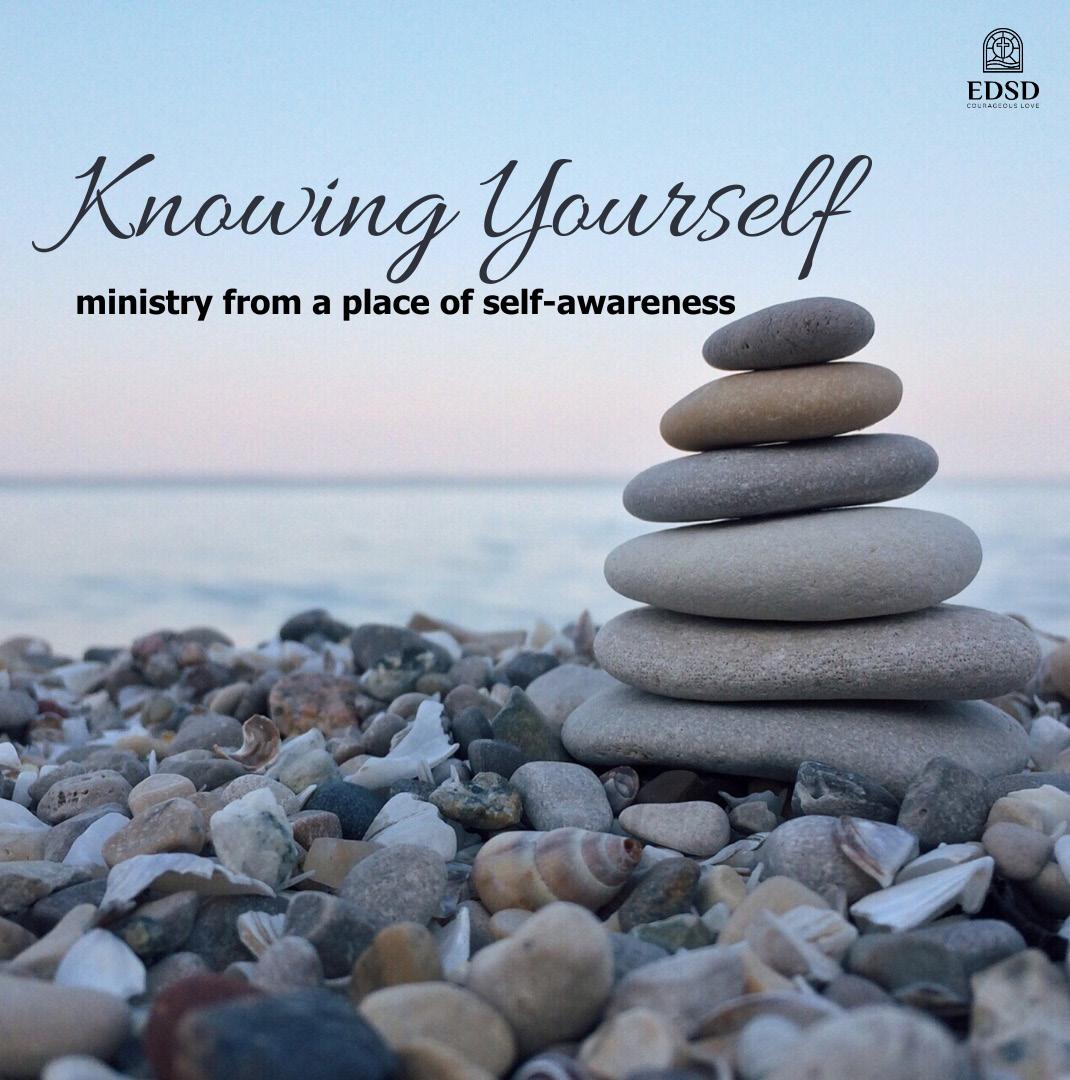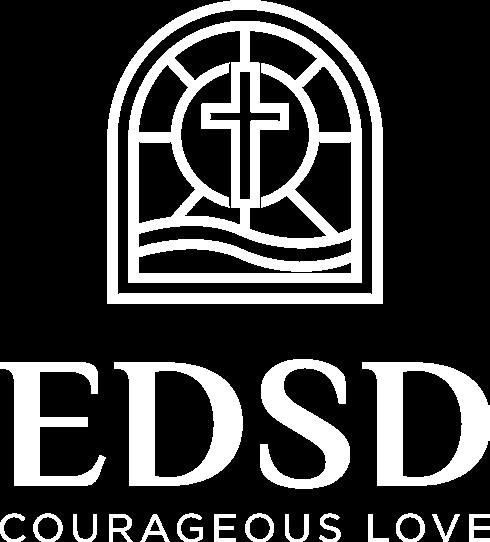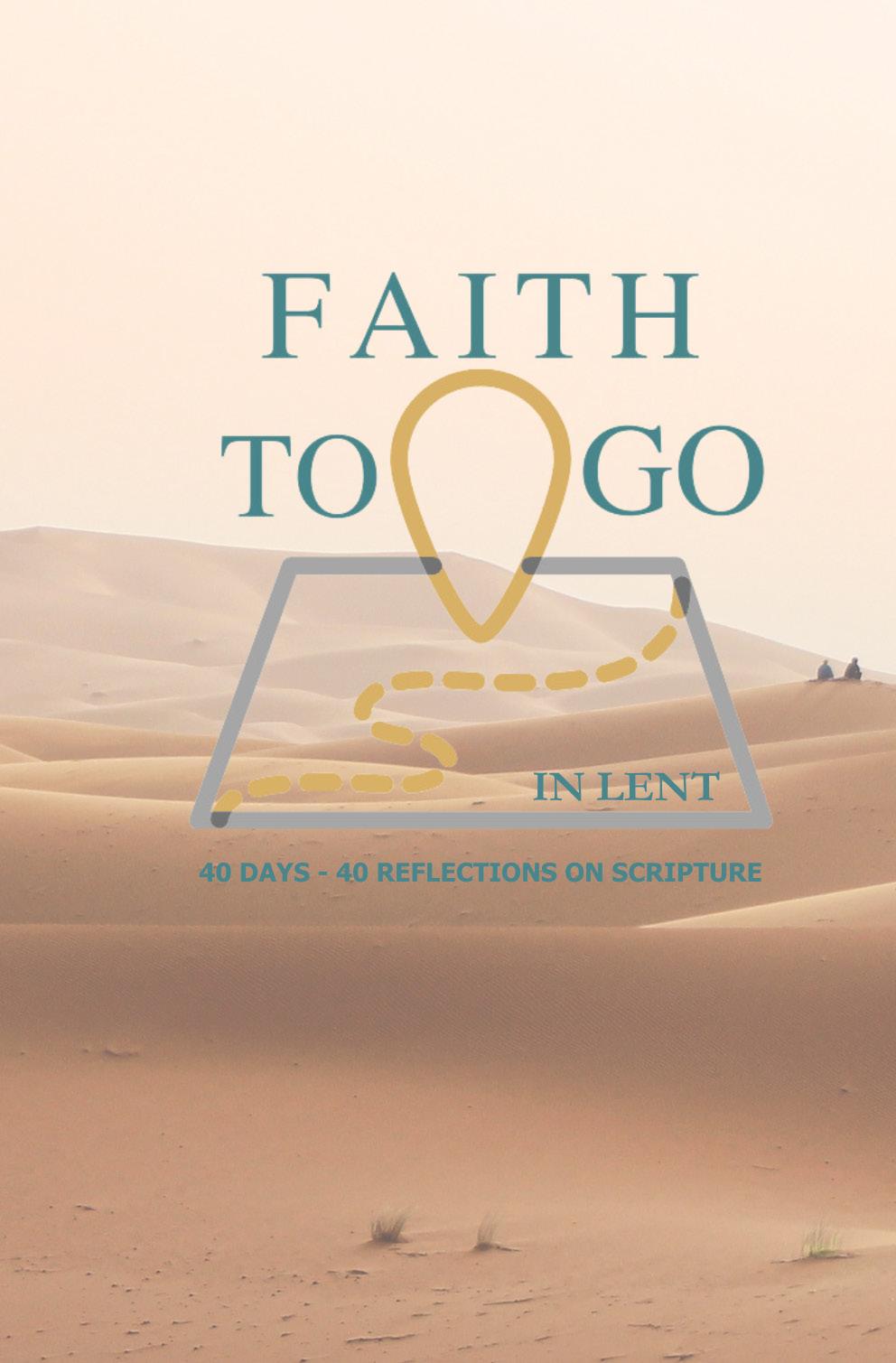

Produced by: The Episcopal Diocese of San Diego
Compiled by: Charlette Preslar, EDSD Director of Formation
Edited by: Chris Tumilty, EDSD Director of Communications
Designed by: Chris Tumilty, EDSD Director of Communications
Lent is a sacred journey—forty days of reflection as we prepare our hearts for the joy of Easter. In this Year of Discipleship, we are called to walk more closely with Christ, deepening our faith through prayer, study, and action. In this book, members of the Episcopal Diocese of San Diego—clergy and laypeople alike—offer their voices in prayerful reflection, guiding us through scripture, personal experiences, and the deep well of our shared faith. May these reflections inspire you to embrace the call of discipleship and discover God’s transforming love in this holy season.
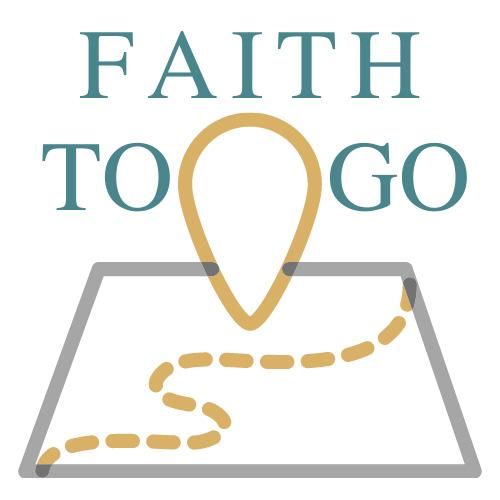
www.edsd.org/faithtogo
Day 1: Ash Wednesday, March 5
Matthew 6:1-6, 16-21
“Be careful not to practice your righteousness in front of others to be seen by them. If you do, you will have no reward from your Father in heaven.
“So when you give to the needy, do not announce it with trumpets, as the hypocrites do in the synagogues and on the streets, to be honored by others. Truly I tell you, they have received their reward in full. But when you give to the needy, do not let your left hand know what your right hand is doing, so that your giving may be in secret. Then your Father, who sees what is done in secret, will reward you.
“And when you pray, do not be like the hypocrites, for they love to pray standing in the synagogues and on the street corners to be seen by others. Truly I tell you, they have received their reward in full. But when you pray, go into your room, close the door and pray to your Father, who is unseen.
Remember that you are dust, and to dust you shall return. It’s an odd thing to say in a Christian church, where we proclaim that Jesus has defeated death and brought us to eternal life. Why do we remind each other today of our dustiness, our grittiness, the impermanence of our bodies and our very lives?
The key to what we celebrate today is the word “remember.” When we say you are dust, and to dust you shall return – that is simple fact. Every molecule of our bodies came from the dust of the universe that blew outward from the Big Bang, the dust that formed stars and planets, the dust that formed this earth. Out of that dust our bodies were made, and when we die, those molecules of US will be recycled for other uses. We are dust, and to dust we shall return.
But the key to Ash Wednesday is not the fact of our dustiness. The key is the word “remember.” When we remember that we are dust, we remember
not just our death, but the other part of our faith, that God willed every molecule of our selves into being. We remember that God looked at the dusty, beautiful world, and called it “very good.” We remember how God reached into the dust and lovingly handled it, rolled it, breathed into it, to create human beings. We remember that we are holy and beloved. We remember that our own God took on the dust of human existence with his own life in Jesus. We remember that God welcomed our holy human dustiness as he welcomed Jesus back into God’s presence.
“Remember that you are dust, to dust you shall return” means, remember that the very dust of your body is forever linked with the creator of the universe. Remember that your dusty humanity has been washed in the water of baptism and made a part of Christ’s own Body. Remember that the ashy cross marked on your forehead is drawn over the same place where you were marked with the sign of the cross at your baptism, when someone said, You are sealed with the Holy Spirit in baptism and marked as Christ’s own forever.
This day, this Ash Wednesday, this day of dust, is a day not of death but of resurrection. We remember that we are dust, and to dust we shall return, but that’s not the end of the story. The last chapter of Good Friday was followed by the new story of Easter. The end of our dusty human lives will be followed by the new creation of resurrection. You are dust, and to dust you shall return. Thanks be to God.
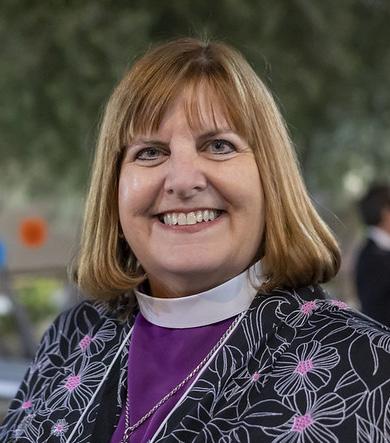
Bishop Susan Brown Snook is a dedicated leader in the Episcopal Church, committed to church growth, discipleship, and social justice. She fosters vibrant congregations and ministries, emphasizing evangelism and community outreach. Her episcopacy is guided by the theme Courageous Love, calling the Church to bold faith, compassion, and action.
Day 2: Thursday, March 6
Luke 9:18-25
Once when Jesus was praying alone, with only the disciples near him, he asked them, ‘Who do the crowds say that I am?’ They answered, ‘John the Baptist; but others, Elijah; and still others, that one of the ancient prophets has arisen.’ He said to them, ‘But who do you say that I am?’ Peter answered, ‘The Messiah of God.’
He sternly ordered and commanded them not to tell anyone, saying, ‘The Son of Man must undergo great suffering, and be rejected by the elders, chief priests, and scribes, and be killed, and on the third day be raised.’
Then he said to them all, ‘If any want to become my followers, let them deny themselves and take up their cross daily and follow me. For those who want to save their life will lose it, and those who lose their life for my sake will save it. What does it profit them if they gain the whole world, but lose or forfeit themselves?
There certainly aren’t a lack of opportunities to pick up our crosses in this wild and – for many of our neighbors, terrifying - time. When the call to be merciful is heard as a threat rather than a blessing. When the hungry, the stranger, the sick, and the imprisoned are targeted by the state rather than recognized as the way we most intimately encounter Christ.
The challenge for me in this time is figuring out which, of the many opportunities, is my cross to pick up. The burden I can handle and the ones my friends can take on aren’t the same. In the same situation, I probably would not have had Bishop Budde’s courage to speak the Gospel in love and respect. But her experiences prepared her for that moment, and she had the courage to take up her cross boldly, without forfeiting herself. I am unlikely to actually lose my life for God’s sake. But speaking up for
the sake of God’s mercy and justice, advocating for those who have been denied power in our society, and witnessing my understanding of God’s expansive love suddenly feels like it comes with more risk than it has in my lifetime. Christ’s reminder today is that, regardless of what we or others have to say about Him, our actions are what mark us as believers in the Messiah. It’s not easy, it’s not without risk, but it is the fulfillment of the greatest promise for humanity.
I pray for the courage to take up my cross – in whatever form it comes – today and every day. To keep God’s promise of salvation and demand for mercy at the core of my life. And to be willing to lose comfort to keep from losing myself.
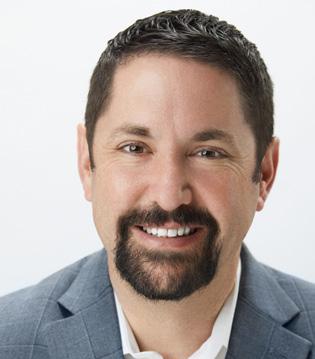
David Jay is a member of Good Samaritan in San Diego. Nourished in formation by many congregations, clergy and lay leaders across the diocese for more than 30 years, he now works through Good Sam’s JUSTAction! ministry, an affiliate of the San Diego Organizing Project, to advocate for a moral economy and true justice for all members of our community.
Day 3: Friday, March 7
Matthew 9:10-17
And as he sat at dinner in the house, many tax collectors and sinners came and were sitting with Jesus and his disciples. When the Pharisees saw this, they said to his disciples, “Why does your teacher eat with tax collectors and sinners?” But when he heard this, he said, “Those who are well have no need of a physician, but those who are sick. Go and learn what this means, ‘I desire mercy, not sacrifice.’ For I have not come to call the righteous but sinners.”
Then the disciples of John came to him, saying, “Why do we and the Pharisees fast often, but your disciples do not fast?” And Jesus said to them, “The wedding attendants cannot mourn as long as the bridegroom is with them, can they? The days will come when the bridegroom is taken away from them, and then they will fast. No one sews a piece of unshrunk cloth on an old cloak, for the patch pulls away from the cloak, and a worse tear is made. Neither is new wine put into old wineskins; otherwise, the skins burst, and the wine is spilled, and the skins are ruined, but new wine is put into fresh wineskins, and so both are preserved.”
When I was growing up, one of our family traditions was to give up something we each loved for Lent. I invariably gave up candy, because I love chocolate. As an adult, I gave up shopping, because I love shoes, or coffee, because I need caffeine. The goal was to refocus the energy we spent on external things to our relationship with God. But for me, denying myself something for 40 days was a bit problematic, since I spent much of the time thinking about the potential chocolate bunny in my Easter basket or the latte and pair of shoes I’d buy on Easter Monday.
In today’s reading, both the Pharisees and John’s followers are needling Jesus about his lifestyle, asking why he’s eating with sinners and - come to think of it - why he and his disciples are celebrating at all and not fasting like they are. Jesus responds with examples of renewal – healing the sick,
repairing cloth, storing old and new wine. And right in the middle of these stories, Jesus tells them to “Go and learn what this means, ‘I desire mercy, not sacrifice,” a quote from the prophet Hosea. “Desire” here is sometimes translated “require;” God requires mercy, not sacrifice.
Jesus calls us to new ways of seeing and being God’s work in the world and shows us how - by loving God and our neighbors as ourselves, even when it’s tough to do so. Jesus is all about restoring this broken world into God’s dream of loving community, which requires patience and grace. Before we discard those who we think don’t belong in this new creation – the sinners, the old wine, the frayed cloak, those on the margins, and even ourselves from time to time - we might turn toward Jesus’ example of compassion for all.
Give up the chocolate, coffee, shoes, or your own personal habit, if that practice brings you closer to God during this Lenten season. But let’s be tender with ourselves and others on this journey of transformation and remember that God desires – requires - “mercy, not sacrifice.”
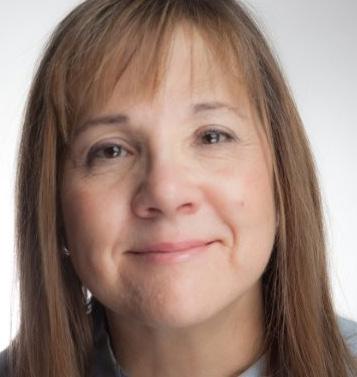
The Rev. Gigi Miller is a long-time member of St. Andrew’s in Encinitas and recently ordained to the diaconate. She serves in several ministries at St. Andrew’s, including Saturday Breakfast, a program offering a hot breakfast in conjunction with Showers of Blessings, mail distribution, health, and county services to our neighbors in need.
Day 4: Saturday, March 8
Luke 5:27-32
After this he went out and saw a tax-collector named Levi, sitting at the tax booth; and he said to him, ‘Follow me.’ And he got up, left everything, and followed him.
Then Levi gave a great banquet for him in his house; and there was a large crowd of tax-collectors and others sitting at the table with them. The Pharisees and their scribes were complaining to his disciples, saying, ‘Why do you eat and drink with tax-collectors and sinners?’ Jesus answered, ‘Those who are well have no need of a physician, but those who are sick; I have come to call not the righteous but sinners to repentance.’
It was very clear to me that, taking into the context of the social dynamics at the time, Levi was a deeply problematic individual in the Jewish community–being a Jew himself and also being a tax collector. Many of the lessons from this particular piece of scripture are applicable not just that time, but also to modern life. Today, there are people that are outcast or ostracized for one reason or another that society doesn't accept, but when Jesus comes and says to Levi, follow me–Levi does not hesitate. Levi follows him without hesitation–and at such a simple command that Jesus gives to Levi. And when we read this first section of Scripture, it's very clear how the grace of God flows out onto Levi, and the spirit touches Levi in such a way, and Jesus's presence touches Levi in such a way that he leaves behind his life of sin. Later, within the passage, we learn that Levi is wealthy enough to host a banquet at his house, and to be wealthy enough at that particular time to host such a banquet, (with these religious leaders and the disciples of Jesus) might suggest that he was a gluttonous man–someone who had money and wealth in such an impoverished society.
But I also think about when the Pharisees come to Jesus and they complain and they say, essentially, you're a hypocrite. Jesus's answer is particularly
touching for me because I didn't grow up Christian. I grew up an atheist, and I felt spiritually sick while I was an atheist. Jesus says, “those who are well have no need of a physician, but those who are sick.” And when I came to Jesus, I felt that type of pull to Jesus.
The final quote: “I have come to call not the righteous, but sinners to repentance.” In reflection, I focus heavily on sin. (And when I talked to my priest about that, he pointed that out as well.) The reason why is that I feel a more, let's say, solemn faith. I am a deeply repentant person, and I feel the weight of my sins very heavily on my shoulders. And when Jesus says that he calls sinners to repentance, I am a part of that group.
And I think that Scripture makes it very clear that to some degree, all people are sinners. And so all people are called to Jesus Christ and repentance. And that's something that I reflected on as I've been alone at my house, and I've prayed a lot about it.
Maybe I'm like the Pharisees where I have a double standard, or I call people hypocrites when I myself cannot see the log in my own eye. But through Jesus Christ, following him as Levi did, his sacrifice on the cross and his resurrection, that is something that even though I will never be sinless, I pray that I can partake in that heavenly kingdom with Him one day, by being a better person and a follower of His.
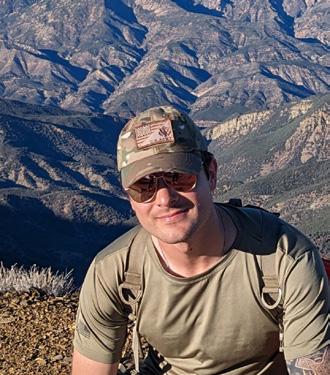
Stefan Henning is a parishioner at St. John the Evangelist congregation in Indio, California. He recently graduated with a Master of Public Administration and is a Sergeant in the United States Army Reserve. He participates in St. John's military ministry, capital work projects, various other church events, and is a lay eucharistic minister.
Day 5: Monday, March 10
Matthew 25:31-46
‘When the Son of Man comes in his glory, and all the angels with him, then he will sit on the throne of his glory. All the nations will be gathered before him, and he will separate people one from another as a shepherd separates the sheep from the goats, and he will put the sheep at his right hand and the goats at the left. Then the king will say to those at his right hand, “Come, you that are blessed by my Father, inherit the kingdom prepared for you from the foundation of the world; for I was hungry and you gave me food, I was thirsty and you gave me something to drink, I was a stranger and you welcomed me, I was naked and you gave me clothing, I was sick and you took care of me, I was in prison and you visited me.” Then the righteous will answer him, “Lord, when was it that we saw you hungry and gave you food, or thirsty and gave you something to drink? And when was it that we saw you a stranger and welcomed you, or naked and gave you clothing? And when was it that we saw you sick or in prison and visited you?” And the king will answer them, “Truly I tell you, just as you did it to one of the least of these who are members of my family,you did it to me.” Then he will say to those at his left hand, “You that are accursed, depart from me into the eternal fire prepared for the devil and his angels; for I was hungry and you gave me no food, I was thirsty and you gave me nothing to drink, I was a stranger and you did not welcome me, naked and you did not give me clothing, sick and in prison and you did not visit me.” Then they also will answer, “Lord, when was it that we saw you hungry or thirsty or a stranger or naked or sick or in prison, and did not take care of you?” Then he will answer them, “Truly I tell you, just as you did not do it to one of the least of these, you did not do it to me.” And these will go away into eternal punishment, but the righteous into eternal life.’
When I was in fourth grade, our hot lunch program required the students to purchase lunch tickets every morning so that the cafeteria personnel would know how much food to prepare. Sometimes kids would forget their lunch money. Sometimes there was no money for lunch. There was often
shaming around food. I know what it feels like. I forgot my lunch money once and my teacher told me she would pay for my lunch this once, but I had better remember to pay her back and never forget my money again.
Right now, eight states provide breakfast and lunch at all schools at no charge, no questions asked. Ten states provide no assistance whatsoever and the balance of the states provide either reduced lunch or free breakfast to the kids who need breakfast. Reduced lunch is shaming. Free breakfast to those kids who can’t pay is shaming. In this country where so much food is thrown away daily, food shaming should not occur. It’s food. They’re kids. Give them the food. Is that so much to ask? Isn’t that what Jesus asks? Jesus is calling on all of us and using some strong language to get his point across. Jesus’ words are not a suggestion. Jesus’ words are a mandate. No excuses.
It’s easy to point fingers and say” See those people over there? They don’t have jobs. Jesus can’t possibly mean for me to accept in all those people from other countries, right? That guy asking for money is just going to spend it on drugs.”
It’s also easy to say “I’ll donate but I have no time to help. I can’t spend the afternoon serving, I’m expected to be at a family party today. You know, I have a hard time with that group’s language skills, so I can’t sit and eat with them.
I’m reminded of these words from Keith Green’s ‘The Sheep and the Goats’.
And Lord, when were You thirsty and we didn't give You drink? I mean, that's not fair Well, would You like something now?
Day 5: Monday, March 10
Matthew 25:31-46
Lord, when were You naked?
I mean, Lord, that's not fair either, Lord
We didn't know what size You wear
Oh Lord, when were you a stranger, Lord?
You weren't one of those creepy people who used to come to the door, were You?
Oh Lord, that wasn't our ministry, Lord
We just didn't feel led, You know?
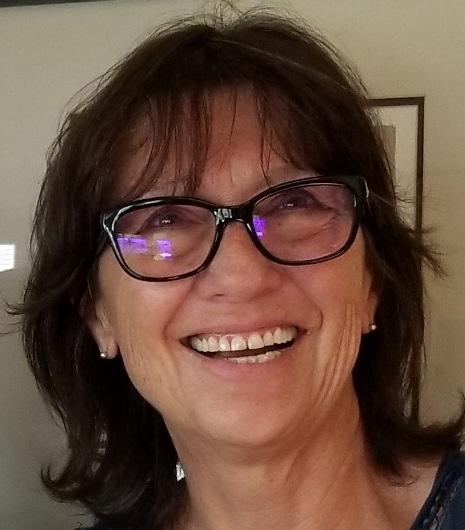
My name is Cindy Dodson and I been a member of St. Mary’s in the Valley in Ramona for almost 15 years. I have been studying for the Diaconate for more than and year and in January of this year, as a Postulant, I was given my Field Work assignment. I will be a part of Trinity in Escondido for the better part of 2025. One of the ministries that I have been part of for well over three years involves feeding the hungry and helping the stranger. I have taken part in efforts to help people who migrate here, via our southern border, locate their loved ones, understand their immigration status papers and find their flight information. I coordinate meal making and delivery to asylum seeking people waiting at the airport for their flight to family, job, safety. I feel that these passages from Matthew speak directly to me.

Day 6: Tuesday, March 11
Matthew 6:7-15
‘When you are praying, do not heap up empty phrases as the Gentiles do; for they think that they will be heard because of their many words. Do not be like them, for your Father knows what you need before you ask him.
‘Pray then in this way:
Our Father in heaven, hallowed be your name. Your kingdom come. Your will be done, on earth as it is in heaven. Give us this day our daily bread. And forgive us our debts, as we also have forgiven our debtors. And do not bring us to the time of trial, but rescue us from the evil one.
For if you forgive others their trespasses, your heavenly Father will also forgive you; but if you do not forgive others, neither will your Father forgive your trespasses.
Matthew 6:7-15 offers Jesus’ teaching on prayer, focusing on the simplicity and sincerity of our communication with God. Jesus talks against empty repetition in prayer, reminding us that God already knows our wants and needs. Rather, it stresses the importance of genuine, heartfelt prayer with God. The Lord's Prayer is a model, focusing on God's holiness, the coming of His kingdom, daily provision, forgiveness, and deliverance from evil. The Lord’s Prayer reminds us that prayer is not just about personal requests but about aligning ourselves with God's will and purposes. In the end, it emphasizes the need for forgiveness. Jesus teaches that just as God forgives us, we are called to forgive others. This underlines the
importance of mercy in our faith, encouraging us to reflect God's love and forgiveness in our relationships with others. Overall, this passage invites us to approach prayer with humbleness, genuineness, and a heart aligned with God's kingdom, while also extending forgiveness as we’ve received it.
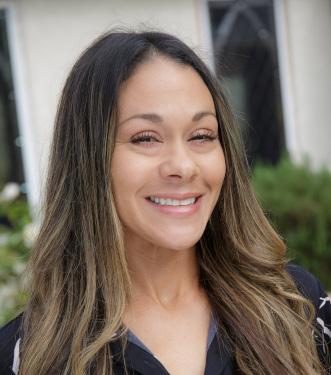
Alyson Terry was born and raised here in San Diego County. She has a 21-year-old daughter, Kali, and a 5-year-old bulldog named Maui. She is a newly baptized & confirmed member of the Episcopal church and attends Resurrection Church in Ocean Beach. She is also a member of the EDSD BIPOC Leadership Team, and Diocesan Registrar since 2018.
